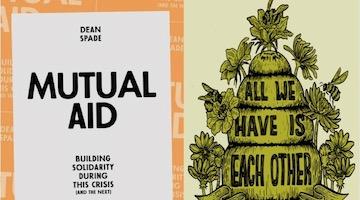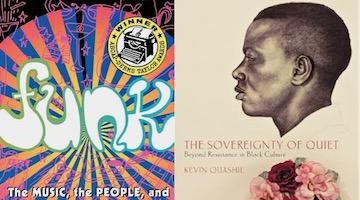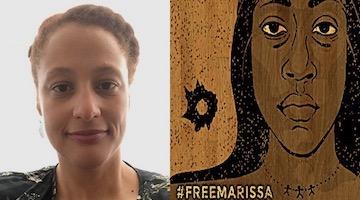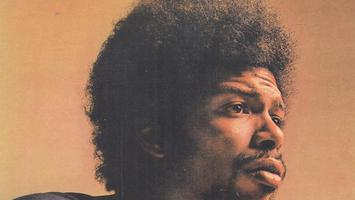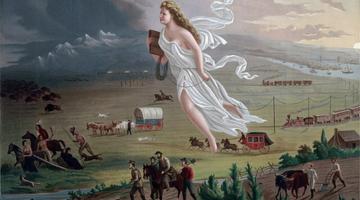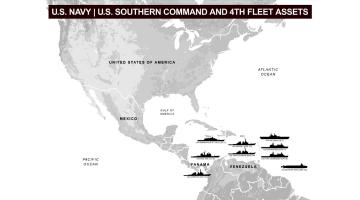BAR Abolition & Mutual Aid Spotlight: Timmy Châu / Artwork by Monica Trinidad monicatrinidad.com
We need to understand mutual aid work as part and parcel to the work of all radical organizing.
“Policing is a necessarily white supremacist and violent system weaponized by the ruling class to contain, maim and murder communities deemed disposable by the state.”
In this feature, we ask organizers involved in mutual aid projects to share a little bit about their work. We understand mutual aid work as the part of social movement organizing that meets people's direct needs. Unlike charity work, however, mutual aid is part of a broader strategy to address the root causes of injustice by mobilizing people to dismantle structures of domination and build the world we want.
Mutual aid efforts are proliferating as people respond to the coronavirus pandemic. You can track emerging projects at mutualaidhub.org, and we recommend checking out this useful guide from Mutual Aid Disaster Relief about how to start COVID-19 mutual aid projects and do the work safely and effectively. We also recommend the Big Door Brigade’s Mutual Aid Toolbox and this short mutual aid explainer video, for starting conversations about what mutual aid is and why it is a vital tactic to expand right now.
This week, we had the honor of interviewing Timmy Châu.
Dean Spade and Roberto Sirvent: Can you please tell readers of the Black Agenda Report a little about your background and the mutual aid work you have been involved in?
Timmy Châu: My name is Timmy Châu, and I’m a Vietnamese-American organizer and facilitator. Currently, I live and organize in the Midwest, on the traditional homelands of the people of the Council of Three Fires, the Ojibwe, Potawatomi, and Odawa as well as the Menominee, Miami and Ho-Chunk nations. I didn’t learn about “mutual aid” until many years after becoming politically active but, as is oftentimes the case, I now understand it as a crucial political framework that characterizes nearly all of my political work. As an organizer, one of my primary goals is to help build and sustain radical social movements. In my experience, mutual aid efforts that directly address the needs of the communities and leaders within our movements, are essential to realizing that goal.
Like many others in my generation, the Black Lives Matter movement was a defining moment for me; it totally re-oriented my understanding of the political status-quo and compelled me to grapple with the horrific reality of state-sanctioned violence. Thanks to the revolutionary activism and leadership of black organizers in the city of Chicago, including Mariame Kaba and Page May, I had the opportunity to join, build with, and learn from an effort known as We Charge Genocide (WCG). Members of WCG first came together after the death of Dominique “Damo” Franklin Jr., a 23 year-old boy who died after being tased by a Chicago police officer. The effort quickly grew to become an intergenerational effort to center the voices and experiences of most targeted by police violence in Chicago, including sending eight Chicago youth organizers to Geneva, Switzerland where the youth shared Damo’s story and presented a report to the United Nations Committee Against Torture documenting the racist policing practices of the Chicago Police Department. During my time at WCG, I was acclimated to abolitionist and anti-violence approaches to social change. I also joined the cop-watch working group, a mutual-aid working group, where I facilitated know-your-rights trainings and trainings on how to film the police during police interactions.
“Mutual aid efforts that directly address the needs of the communities and leaders within our movements, are essential to building and sustaining radical social movements.”
At WCG I also learned the importance of local campaigns as a way to mobilize communities toward long-term, transformative demands as well as vehicles for developing and supporting new leaders in our movement. We mobilized Chicagoans around several local campaigns incuding the campaign for Reparations for Chicago Police Torture Survivors under Jon Burge (Chicago Reparations Ordinance), the campaign to end the Chicago Police Department’s stop and frisk policies (STOP Act), and the campaign to oust former Cook County State’s Attorney, Anita Alvarez (#ByeAnita). While many people think of mutual aid efforts as projects that provide direct material resources to satisfy people’s needs such as food or clothing, I believe mutual aid can also be used to describe when people take collective action to directly challenge and transform their political conditions.
Our work within the cop-watching working group at WCG eventually led to the later formation known as the People’s Response Team(PRT), a rapid response team committed to supporting families impacted by various forms of police brutality by documenting abuses by police throughout the Chicago-land area and connecting impacted people with material, medical, and legal resources after an incident. PRT was inspired by the Anti-Police Terror Project’s First Responders Team in Oakland, CA.
For those who don’t know, Chicago is a highly segregated city, where limited access to resources and services for poor black people has long, historical roots. The borders that separate communities with and without access to the vast majority of Chicago’s economic resources are patrolled and enforced by the Chicago Police Department (CPD) – whether it’s through the extra-judicial murder of black and brown people in poor neighborhoods, or through increased surveillance and harrassment of poor balck and brown people being pushed out of gentrifying neighborhoods. At PRT, we facilitated trainings on basic legal rights when interacting with police, cyber-security, anti-raid, and anti-deportation tactics. We led city-wide campaigns for police accountability and transformative demands. We worked in deep collaboration with local partners, namely, Black Lives Matter-Chicago, to respond to police violence and coordinate support.
“The borders that separate communities are patrolled and enforced by the Chicago Police Department.”
Oftentimes this support looked like raising funds for loved ones of those killed by police, as was the case on June 6th, 2018, when CPD killed 24 year-old Maurice Granton Jr. after shooting him in the back as he ran away. Maurice was a father of two daughters and lived in the Bronzeville neighborhood of Chicago. In addition to fundraising, PRT would also support organizing vigils and speak-outs for family-members to share their stories and voice their grievances.
Other times, support looked like documenting and uplifting demands for accountability and challenging false narratives in the media after instances of police violence. This was the case after CPD shot and killed 37-year-old Harith “Snoop” Augustus. Snoop was a loved and respected barber in the South Shore neighborhood of Chicago known for bringing his 5-year-old daughter with him wherever he went.
Ultimately, as described in our joint statement with BLM-Chi regarding Snoop’s murder, “deadly police shootings reflect the disturbing reality of policing and surveillance with accompanying urban development policies designed at gentrifying poor Black and brown neighborhoods, overall divestment from Black economic and social communities, divestment from education and mental health care systems nationwide.”
Providing a truthful and survivor-centered account of these incidents was central to challenging false media narratives that nearly always adopted the police department’s story despite the long, well-documented history of corruption within the Chicago Police Department. This often involved actually investigating the scene of a police-involved shooting immediately after an incident, conducting FOIA requests, and connecting with witnesses.
For more details on rapid response, click here to view PRT Investigative Process document.
Lastly, in 2017 we co-created the Alternatives to Calling the Police During Mental Health Crises (ACPDMH), a mutual aid workshop series that highlighted the intersections of police violence and mental illness and provided de-escalation techniques to support individuals experiencing crises. The series also included a local asset mapping session where participants co-created hyper local asset maps that could be potentially called upon during instances of police escalations. We held these workshops in neighborhoods across the City, and each workshop was hosted in partnership with a community organization from that neighborhood.
How does this work fit into the broader struggle for change you are working on? How does it mobilize for change rather than merely being a "band aid" on a harmful system?
The Problem is Policing. Central to our work at WCG, PRT, and ACPDMH was understanding that policing is a necessarily white supremacist and violent system weaponized by the ruling class to contain, maim and murder communities deemed disposable by the state. This meant that, through all our efforts, we did not support, nor did we organize around, efforts to reform the Chicago Police Department. This meant focusing our efforts on growing the skills, resources, and capacities of communities directly impacted by police violence, and working to chip away, or make less viable, the skills, capacities, and resources of the police.
Instead of supporting efforts to give cops body cameras, or to subsidize ‘racial bias’ training, we worked to provide direct mutual aid support to families terrorized by killer-cops as well as disrupt the state’s narrative in the wake of instances of police violence, generally. In essence, we moved to directly address the harms and needs of our community caused by state-violence.
As abolitionists, we believed (and still believe) that policing does not keep our communities safe. Instead, our collective resources and energy should be invested in systems that actually keep us safe and whole, like schools and healthcare.
Have you seen the dangers of co-optation of the mutual aid work you have done? What structures or methods have the organizations or projects you work with put in place to address that danger?
While many community-members and city officials were sometimes sympathetic to the voices of those impacted by police violence, calls for “accountability” and “reform” were often channeled into individual cases against police officers or efforts to reform the police that failed to contend with the systemic nature of police violence.
Adopting the invest/divest framework put-forth by other abolitionist organizers, PRT, alongside other abolitionist organizations including Assata’s Daughters, led the #NoCopAcademy campaign, demanding that Chicago decision-makers stop the construction of a $95 Million dollar police academy and use that money to fund programming and resources for youth and community instead. Though the campaign was ultimately rejected by local politicians and city officials, the effort radically transformed the dialogue around policing from one that was about reforming the police, to one that was about reducing policing.
What are the pitfalls of mutual aid work, from your experience?
Burn-out + Capacity. The core of active PRT members was made up of 4-10 folks at any given time. Our project accomplished a lot: 1) provided direct monetary support to families impacted by police violence via gofundme's and grassroots fundraising, 2) provided legal support to families impacted by police violence by establishing contact and connecting them with trusted legal advocates, 3) provided mental health and trauma-informed referrals to families impacted, 4) did on-scene investigations of instances of police violence, 5) provided know-your rights and cop-watching workshops for organizations and groups, and 6) provided logistical and all-around support to BLM-Chicago, among other things. Since we had a pretty small group, and since we weren't actively building out our membership, it became very hard to sustain. Additionally, repeatedly interfacing with intense emotional and physical trauma in the wake of instances of police violence meant that the work itself was very, very heavy.
Negotiating Privilege, Needs, and Capitalism. Much of our work was made possible where many core members leveraged time, money, and resources from their paid-labor situations to sustain our efforts. For those who were not in a position to leverage those resources, or for those (like myself at the time) struggling to meet our own personal needs, finding ways to sustain our efforts while also balancing our own struggles and needs was a constant challenge.
“Many core members leveraged time, money, and resources from their paid-labor situation.”
Highly sensitive work, hard to bring new folks in. Given the gravity and sensitivity of the work we were doing, it was very challenging to bring new, trusted folks into the work itself. The work relied heavily on deep, trusted relationships between core members and collaborators in BLM Chi. The rapid-response work of going to the scene of a police shooting and investigating and connecting with family members required high levels of commitment, experience, and willingness to work in environments with many safety risks. Additionally, handling potential evidence, whether it be video footage or interviews with folks at a scene of police brutality meant understanding legal considerations and risks. All that said, this made the skill sets involved with the work challenging to pass on and sustain.
Reflecting back, more energy could have been put toward training new leaders within our crew so that skills and labor could be shared with a growing number of people. In order to respond to burnout, more time could have been spent building out our internal practices of care through more regular check-ins, more space for processing and grieving, or even more time spent as a collective outside of rapid response mode. Overall, folks looking to take on similar efforts requires balancing the urgency of responding to the many immediate harms of state violence with a long-term strategy, whether that’s having a structure to share skills and train up new leaders or rally community members around longer-term campaigns.
Do you think mutual aid work has any special or particular role in the current conditions/crises?
Alternatives to Capitalism and the End of the World. Now more than ever it feels imperative to be uplifting and developing alternative models for meeting the needs of our communities that are not predicated on the extraction and dispossession of resources. Even more so, it is important to provide mutual aid frameworks for anti-racist, anti-capitalist, and decolonial organizing efforts where an ever-growing charity and non-for-profit model plays an increasingly dominant role, turning movement-building toward freedom into an industry necessitating un-freedom.
Additionally, as we are seeing in places like Puerto Rico, where communities are organizing in the wake of ecological disaster and where the State has left communities to fend for themselves, mutual aid offers a clear way to organize our communities and local economies where we can gradually replace the need for institutions offered to us by governments and corporate elites. The coronavirus has exposed, on a global scale, that states are deathly ill-equipped to meet the needs of our communities in times of crises. Meanwhile, corporate elites have already found ways to profit from our sickness and death. Thus, building out more mutual aid efforts to meet the needs of our community where the state and private sector have abandoned us will be increasingly important.
Do you have ideas about how mutual aid could expand or mobilize more people?
I believe we need to understand mutual aid work as part and parcel to the work of all radical organizing. That is, I don’t think we can afford not to build out local and participatory efforts that meet the needs of our communities if we want to sustain radical movements for the long haul. I think there's a false binary between service providers and advocacy which has been dictated to us in part by the state as it has outsourced its responsibilities to the nonprofit sector.
I think organizers and activists should seek to build spaces and organizations that do both: offer direct support to people's needs, and challenge the systemic conditions that create those needs in the first place.
Are there any examples of other mutual aid work, historical or contemporary, that particularly inspire you or that you have used as a model?
One example of a mutual aid effort that always inspires me is the School of Youth and Social Service (SYSS), a grassroots relief organization of 10,000 volunteers that provided wholescale medical, educational, and agricultural facilities in rural Vietnam as state governments were embroiled in the Vietnam/American war. The organization was co-founded by Thich Nhat Hanh and Sister Chan Khong, two Vietnamese Buddhist monks, and advocated engaged Buddhism as a social and spiritual praxis toward building a world without suffering.
Another example, which was happening at roughly the same time, was the Black Panther Party Free Breakfast Program. The program provided free food to young black Americans who were being neglected resources by the federal government. Importantly, the same Black Panther Party leaders leading mutual aid efforts in the so-called US were at the same time calling out the US-led war in Vietnam that SYSS was actively responding to: “We will not fight and kill other people of color in the world who, like Black people, are being victimized by the White racist government of America."
What can readers of the Black Agenda Report do to support your work?
I would love if readers can check out the work of the Prison+Neighborhood Arts Project, a visual arts and humanities project that connects teaching artists and scholars to men at Stateville Maximum Security Prison, as well as a new formation called Dissenters, a new generation of young people organizing to end all war and militarism repair our relationship with the earth and communities across the globe.
Dean Spade is the creator of the mutual aid toolkit at bigdoorbrigade.com. He has been working in various poverty-focused and abolitionist mutual aid projects for the past 20 years. He is the author of Normal Life: Administrative Violence, Critical Trans Politics and the Limits of Law (Duke University Press 2015). His video projects and writing are available atdeanspade.net.
Roberto Sirvent is Professor of Political and Social Ethics at Hope International University in Fullerton, CA, and an Affiliate Scholar at Yale University’s Interdisciplinary Center for Bioethics, where he directs the Race, Bioethics, and Public Health Project. He is co-author, with fellow BAR contributor Danny Haiphong, of the book, American Exceptionalism and American Innocence: A People’s History of Fake News—From the Revolutionary War to the War on Terror.
COMMENTS?
Please join the conversation on Black Agenda Report's Facebook page at http://facebook.com/blackagendareport
Or, you can comment by emailing us at comments@blackagendareport.com

